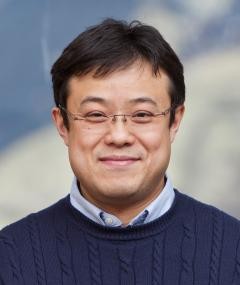"International Order Transition And US-China Strategic Competition In The Indo Pacific" By CWP Alum Kai He

The world is changing, and the liberal international order (LIO) is at stake. Scholars and pundits hold different views on whether and how an order transition will take place. We argue that the divergent arguments around LIO are rooted in contested conceptualizations of what an international order is as well as the untheorized measure of what counts as a ‘transition’ of international order. We propose a synthesized and deductive approach to defining international order with three pillars: power, institutions, and norms. We argue that a significant order transition will take place when at least two pillars of the order are fundamentally challenged and eventually changed. Applying this deductive, three-pillar conceptual framework of international order, we preliminarily examine how US-China competition has impacted the current LIO in the Indo Pacific. We conclude that the multi-pillar feature of the international order technically strengthens the sustainability and resilience of the current LIO. Even though China’s rise might change the power distribution in the system—the power pillar of the order, the mere power shift between China and the United States will not lead to a significant order transition if the other two pillars of the order remain intact.
Published online: 23 Dec 2022 https://doi.org/10.1080/09512748.2022.2160789 - Kai He and Huiyun Feng
Kai He is Professor of International Relations and Director, Centre for Governance and Public Policy, Griffith University, Australia. He is a visiting Chair Professor of International Relations at the Zhou Enlai School of Government, Nankai University, China (2018-2020). He is currently an Australian Research Council (ARC) Future Fellow (2017-2020). He was a postdoctoral fellow in the Princeton-Harvard China and the World Program (2009-2010).
He is the author of Institutional Balancing in the Asia Pacific: Economic Interdependence and China's Rise (Routledge, 2009), Prospect Theory and Foreign Policy Analysis in the Asia Pacific: Rational Leaders and Risky Behavior (co-authored with Huiyun Feng, Routledge, 2013), and China’s Crisis Behavior: Political Survival and Foreign Policy (Cambridge, 2016). He is a co-editor (with Huiyun Feng) of US-China Competition and the South China Sea Disputes (Routledge, 2018).His peer-refereed articles have appeared in European Journal of International Relations, European Political Science Review, Political Science Quarterly, Review of International Studies, Security Studies, International Studies Review, International Politics, Cooperation and Conflict, Contemporary Politics, Asian Survey, The Pacific Review, Journal of Contemporary China, The Chinese Journal of International Politics, Asian Security, Asian Perspective, Australian Journal of Political Science, Australian Journal of International Relations, International Relations of the Asia Pacific, Issues and Studies, Strategic Studies Quarterly, and East Asia.
He received several internationally competitive fellowships and grants, including the Princeton-Harvard China and the World Program Postdoctoral Fellowship (2009-2010), a Lynde and Harry Bradley Foundation Research Fellowship (2009-2010), an EAI fellowship (2011-2012) from the East Asia Institute in Seoul, an Asia Studies Fellowship (2012) from the East-West Center in Washington D.C., and visiting fellowships (2014/2017) from the S. Rajaratnam School of International Studies, Nanyang Technological University, Singapore, and a policy-oriented research grant from the Korea Foundation, South Korea. His current research projects are funded by the MacArthur Foundation, USA (2016-2018) and Australian Research Council (2017-2020). the Australian Research Council [grant number FT160100355] and the John D.and Catherine T. MacArthur Foundation [grant number 16-1512-150509-IPS] for their support.
Photo Credit: https://pixabay.com/users/geralt-9301/

